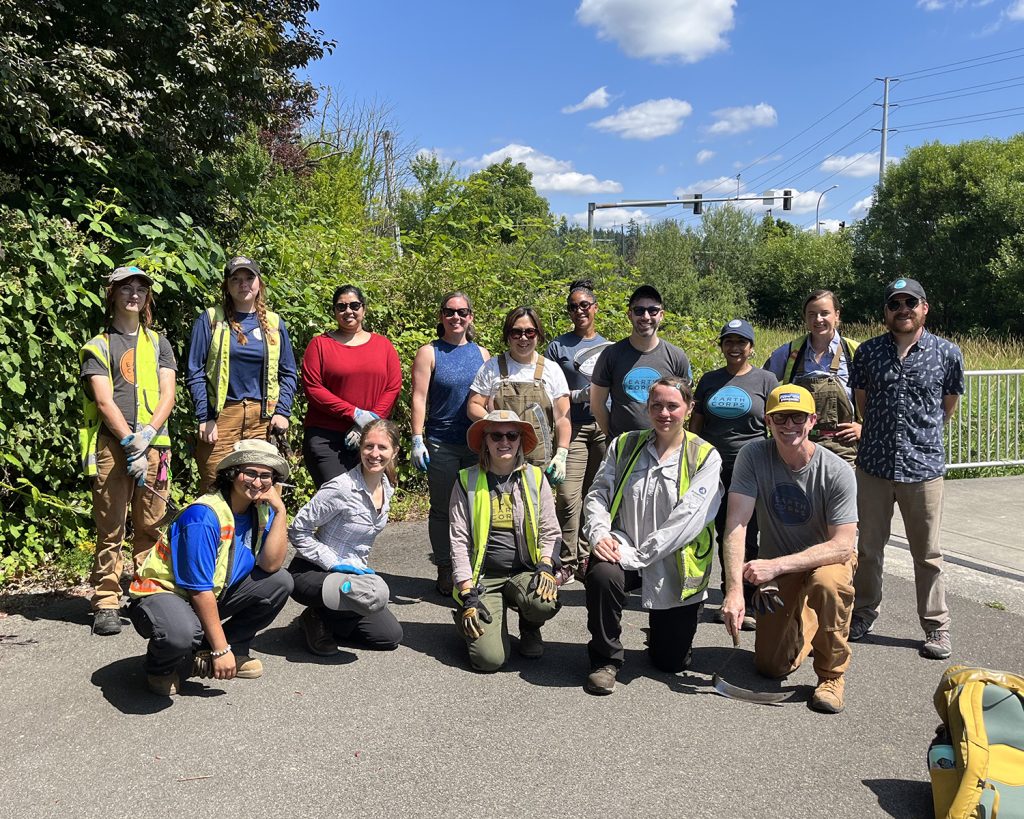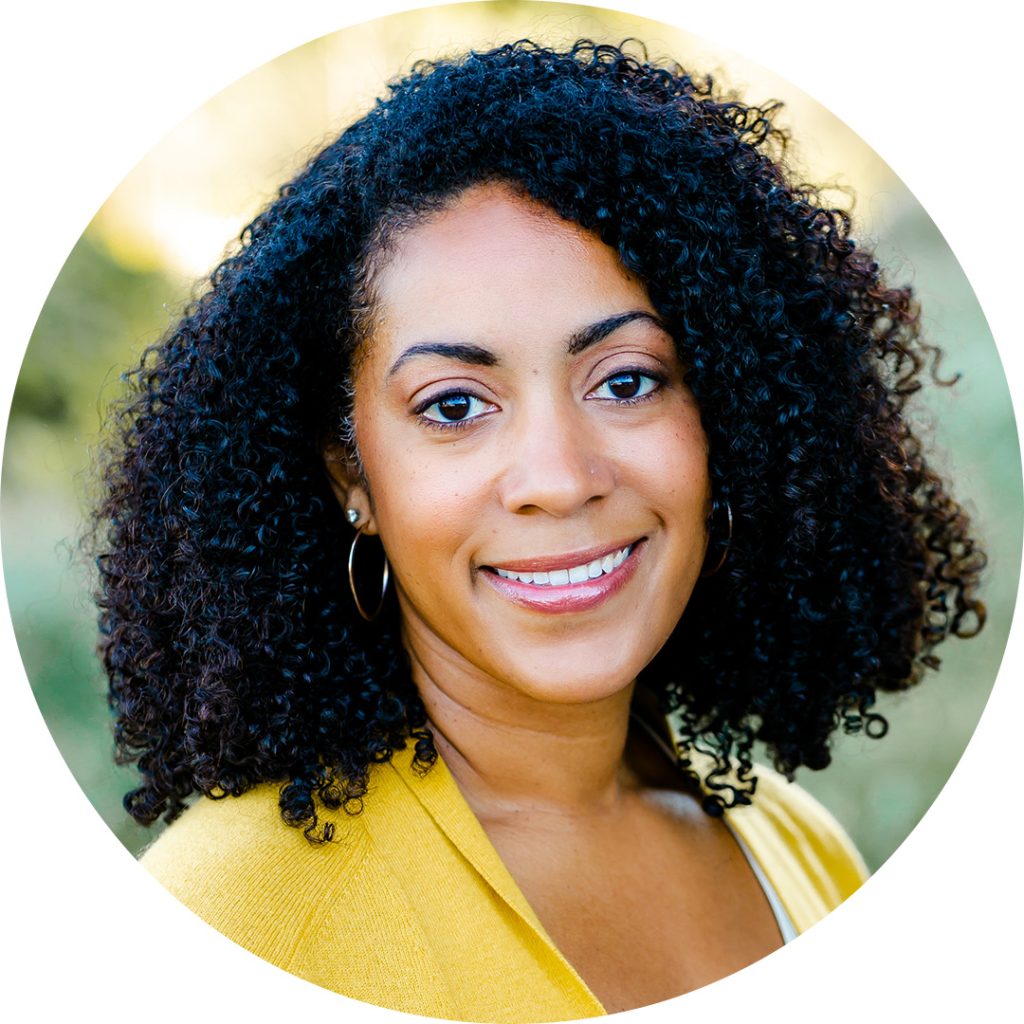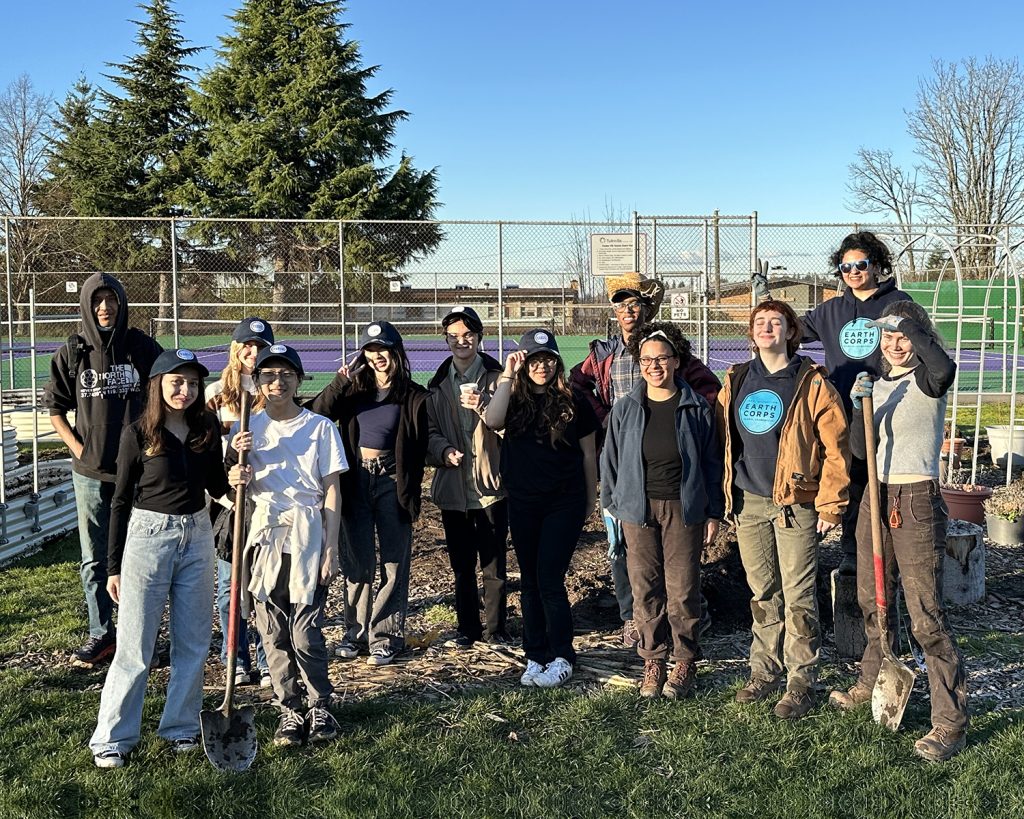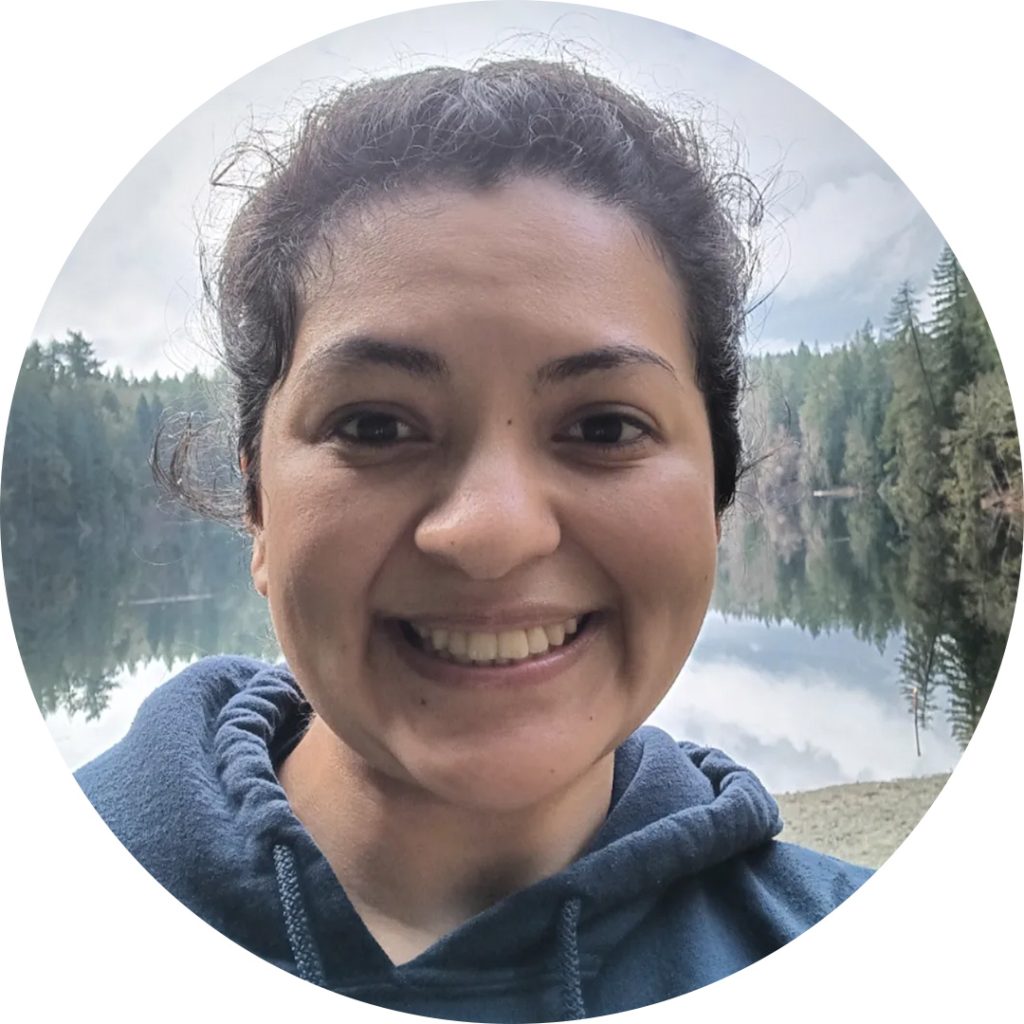International Women’s Day
International Women’s Day (IWD) is a global day to celebrate women’s achievements while recognizing the barriers women face to produce real action. If we want to create a healthy planet, achieving gender equality and gender equity is more crucial than ever, but local policies and global challenges disproportionately affect women and marginalized groups. In celebration of IWD, EarthCorps is amplifying the voices of two women who are role models in how each of us can invest in women every day.

According to the UN, there’s a USD 360 billion annual deficit in spending on gender-equality measures (GEM). GEM is a measure of inequalities in economic participation and decision-making, power over economic resources, and political participation and decision-making. However, EarthCorps President Emeritus, Tania Elahee, recognizes narratives around gender inequalities often center around data averages and fall short in painting the picture of the unique challenges faced by various groups of women within the USA – such as those experiences compounded by race, sexual orientation, sex assigned at birth, ability, socioeconomic status, and more. She shares that: “According to the US Department of Labor, white women make $0.79 for every dollar that a white man earns, yet Black women make $0.67 and Hispanic women make $0.57.”

“Tools to improve racial equity and community engagement are the same tools that support our view and approach to gender equity and equity for other dimensions of diversity.”
— Tania Elahee, President Emeritus
As a member of the board, Elahee focuses not only on what EarthCorps does but who benefits. Instrumental in supporting the implementation of EarthCorps’ Three-Year Strategic Plan, Elahee is an advocate of equity for all. She explains: “Our strategic plan focuses on race primarily because the data has shown that is where we have the biggest opportunity to grow. However, tools to improve racial equity and community engagement are the same tools that support our view and approach to gender equity and equity for other dimensions of diversity. We begin by valuing how these differences make us more effective as an organization.”
The world needs women-led organizations that are considering gender inequalities while tackling global environmental challenges. However, the UN reports that female-led organizations “receive only .13% of official development assistance.” At its core, EarthCorps is an environmental training and leadership program that provides the skills and tools for environmentalists to lead action and change within their communities.

Echoing Elahee’s sentiments, EarthCorps Volunteer Specialist Raquel Escalera recognizes that “equal representation and development opportunities tend to be worse for women of color, or other minority groups, such as myself. There’s traditionally been a deficit of women leaders in the environmental field.”
As a member of the 2024 Corps Cohort supporting EarthCorps’ Community and Volunteer Engagement Program, Escalera fosters relationships with youth and community partners, including the high school internship initiative. Partnering with schools, such as Foster High in Tukwila, WA, interested students can shadow corps members, support hands-on work in the field, and learn about environmental restorative practices through paid internships.

“Women should be highlighted and appreciated year-round. Compete against climate change and invasives, not each other.”
— Raquel Escalera, Volunteer Specialist
Escalera joined EarthCorps in 2023, as a Crew Member, where she developed and learned skills such as plant ID, native species planting, non-native species removal, and ergonomics. Now, in a position where she is a role model for youth, she’s eager to invest in future leaders by providing pathways and representing women of color in the environment field. She explains: “Considering that not a lot of females are traditionally portrayed as having these skills, or an appreciation of this work, I think it is important to highlight these skills to show that more women can and do appreciate this type of work. Women should be highlighted and appreciated year-round. Compete against climate change and invasives, not each other.”

